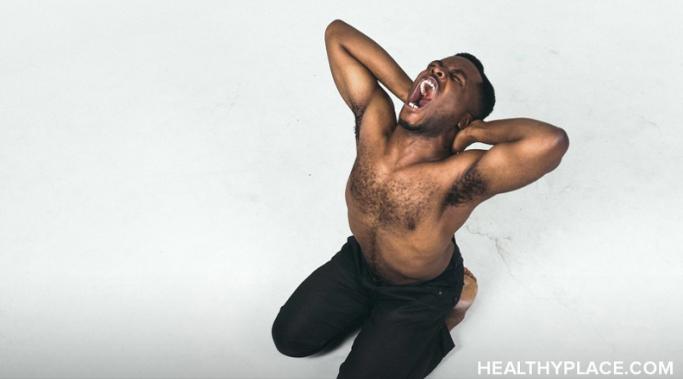Blogs
Most mainstream eating disorder films offer stereotypical representations of people with eating disorders. It’s important for our storytellers to start offering honest and responsible portrayals of eating disorders that speak to a wider spectrum of people.
Being honest in therapy is much easier said than done. Even though we go to therapy because we want help, there may be certain things we've never discussed with anyone, let alone a complete stranger. Or if you're like me, it's not that you don't want to be honest, it's that you get all turned around in your head the moment you walk into the office and completely forget what you were going to say. For others, you may never have had a person you could truly be honest with, and now you aren't sure how to go about it.
It's 3:00 a.m. and I can't sleep. I'm sitting in the commons area of an eerily quiet psychiatric hospitalization unit while I recover from a relatively severe psychotic break. I wasn't going to blog this week because, well, the obvious. On top of that, all I have is pen and paper, no Internet access. But my wife still managed to post this week despite taking me to the hospital and picking up the slack in my absence. It is good to emulate one's heroes and I can think of no greater hero than my wife. I just wish I were a little more like her. But I have to remember that psychiatric hospitalization does not denote weakness.
While there are many people in the world who continue to stigmatize mental health, sometimes the most trying situations come from dealing with the people in our immediate lives who continue to spread stigma. There are a number of ways to handle people who approach mental health from a perspective of stigma, but here are 2 easy ways that you can deal with the people in your life.
Does anxiety define you? Do experiences determine who we are? These are questions that have been bugging me for the past week as I've talked to friends who experience anxiety and read about others who do as well. For many, reaching out to a therapist or even just feeling anxiety frequently leads them to define themselves by anxiety. Anxiety shifts from an experience they have to a label that globally identifies them as "disordered" or "messed up," and these negative labels, in turn, can exacerbate anxiety.
There is this myth of a "nervous breakdown." We see this term in news report, press releases and even in our own families -- "Oh, you know Aunt June? She suffered a nervous breakdown." But what are people talking about when they say someone had a nervous breakdown. Clearly, something happened but the truth of the matter the idea of a "nervous breakdown" is a myth.
Do we have to conquer fear? I've gone through some changes in my life recently that have me thinking about fear. In particular, how we react to feeling afraid. Why are some fears considered perfectly acceptable, while others fill us with shame and demand action? Being afraid of an aggressive animal, an impending surgery, or a loved one experiencing harm are all considered rational and acceptable. Yet we tend to hide our fears of social interaction, object/behaviors that feel uncomfortable, or people who affect us. So, what makes certain fears unpalatable? What makes us decide a fear is unfounded or embarrassing? Why are some fears allowed, while other fears must be conquered?
I recently saw a quote in which someone was lamenting the fact that there were more articles describing narcissism and narcissistic abuse than how to heal after abuse. I thought it was a strange distinction to make. When survivors of narcissistic abuse read articles about narcissism and narcissistic abuse, that is a form of healing after abuse.
Reading books helps immensely with my schizoaffective disorder and my schizoaffective anxiety. Reading books is a great escape, too, and gives value to my time. But it’s a catch-22 because, in order for me to be able to concentrate on a book, my schizoaffective anxiety has to be at a lower level than it usually is.
Here's an anxiety checklist that can help you define your relationship with anxiety. A big part of Mental Health Awareness Month, currently in full swing, is increasing understanding of all things mental health. This includes your own relationship with anxiety. It's useful to know what anxiety is, especially if you're experiencing uncomfortable symptoms but don't know if they are related to anxiety. You can use the below anxiety checklist to better understand your anxiety and then to strengthen your mental health.









